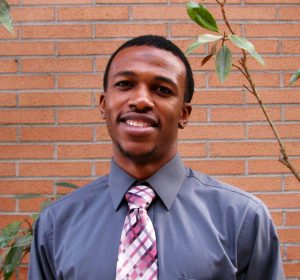Major and Classification
International Relations (Global Business)
Faculty Mentor
Steven Lamy, Ph.D.
Department
Dornsife College of Letters, Arts and Sciences
McNair Project
“Social Media as a Political Change Agent: An Institutional Voids Analysis of the Arab Spring Revolution”
Project Abstract
Since the onset of the digital information age, we have seen a gradual transition from traditional means of communication to more modern, high-speed means. This transformation has by no means skipped over civil societies and politics in general, as an increasingly large young demographic of unsatisfied individuals turn to online means to protest against a government they feel ill-represents them. Whether it be through the use of social media to organize a demonstration, emanate a petition, or simply spread information to the audiences who will listen, the Internet has undoubtedly revolutionized collective action, insofar as Western societies where there is extensive Internet penetration, in the modern era. This study looks to expand upon previous research in accordance with the onset of the Arab Spring Uprisings occurring in the Middle Eastern and North African regions. As many nations in the region have been historically ruled under autocratic regimes, one expects to confirm the recent buzz around social media’s integral role in the overthrow of dictators in Tunisia, Egypt, Syria, Libya, and Yemen in 2011. It has been regularly cited as the outlet sought after by young Middle Eastern activists who posted a wide variety of sociopolitical content depicting organized rallies and videos of human rights abuses, thus inciting further rage among the citizenry and further political participation. Social media can be recognized to have played a pivotal role in accelerating and amplifying the vivacity of these movements, because further publication on these websites led to widespread shock at seeing them for the first-time by eyes around the world. Mobilization ensued as a demographic of postmaterialist young people protested against powerful regimes, leading to many of their respective toppling. This research investigates whether institutional voids led to more participation facilitated through social media, and looks to define what other kinds of societal abuses are conducive to protests and uprising. With this information, one stands to apply the learning cultivated through the Arab Spring Revolution in a prescriptive fashion onto other societies experiencing the same or similar sociopolitical difficulties.
